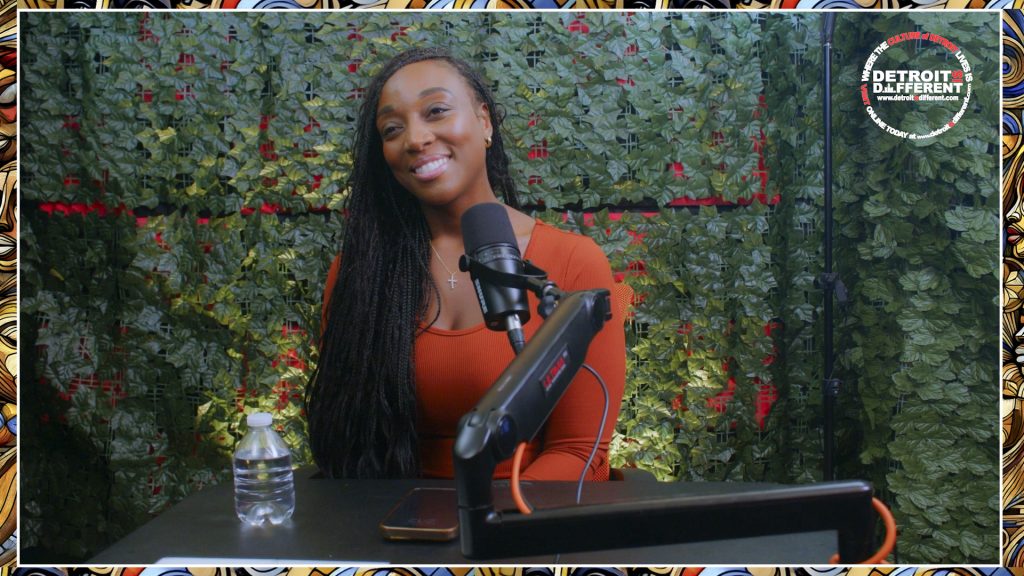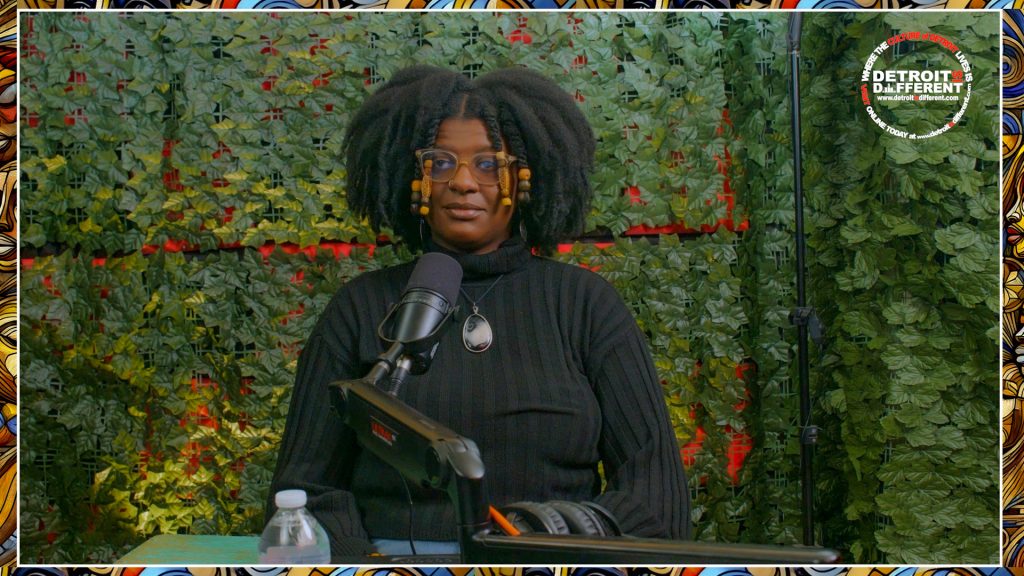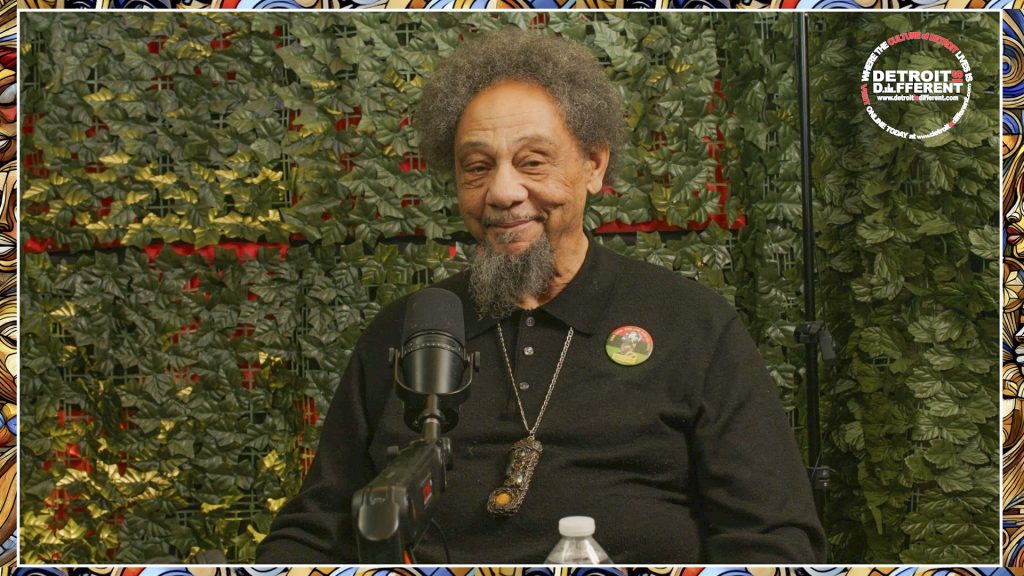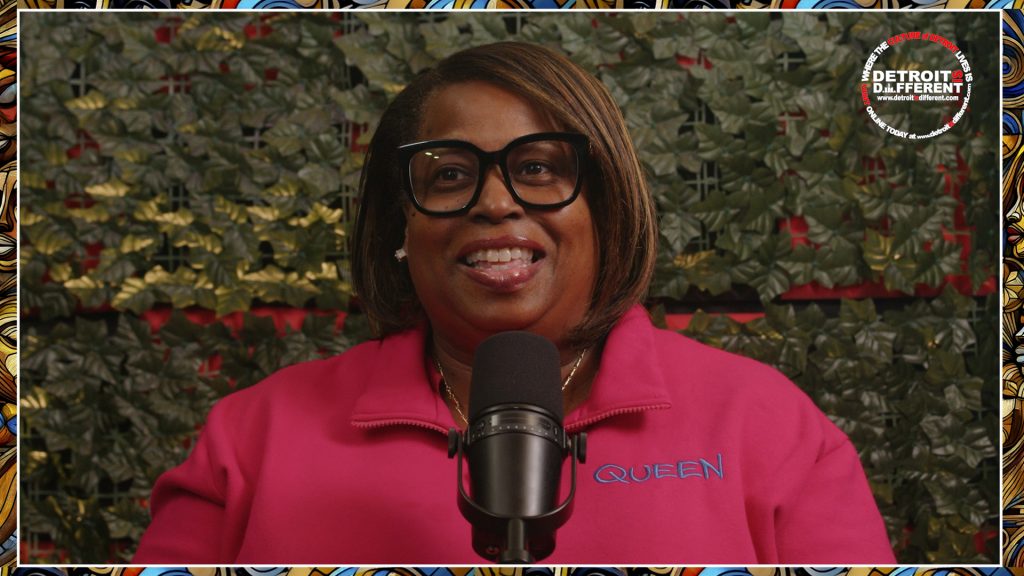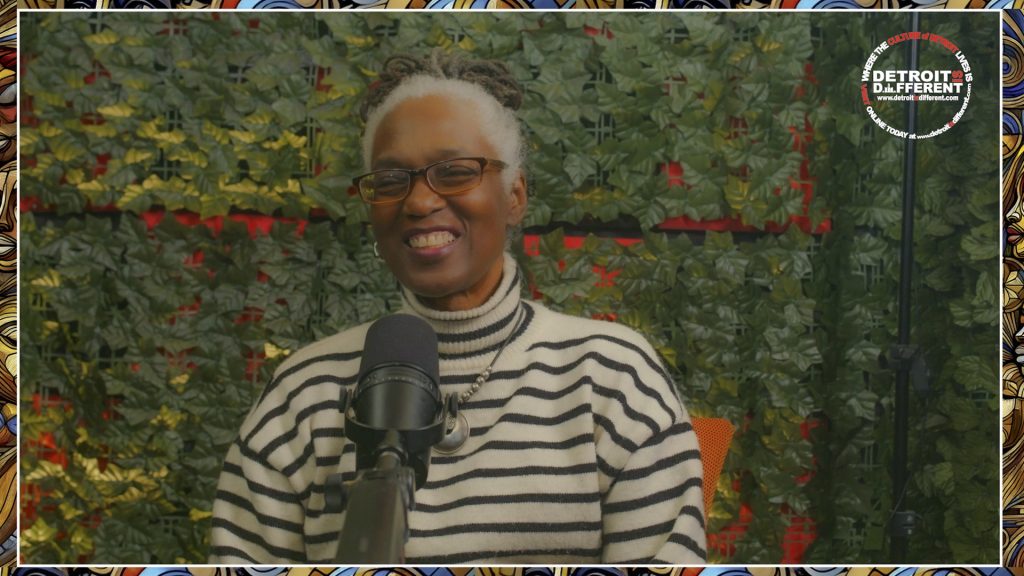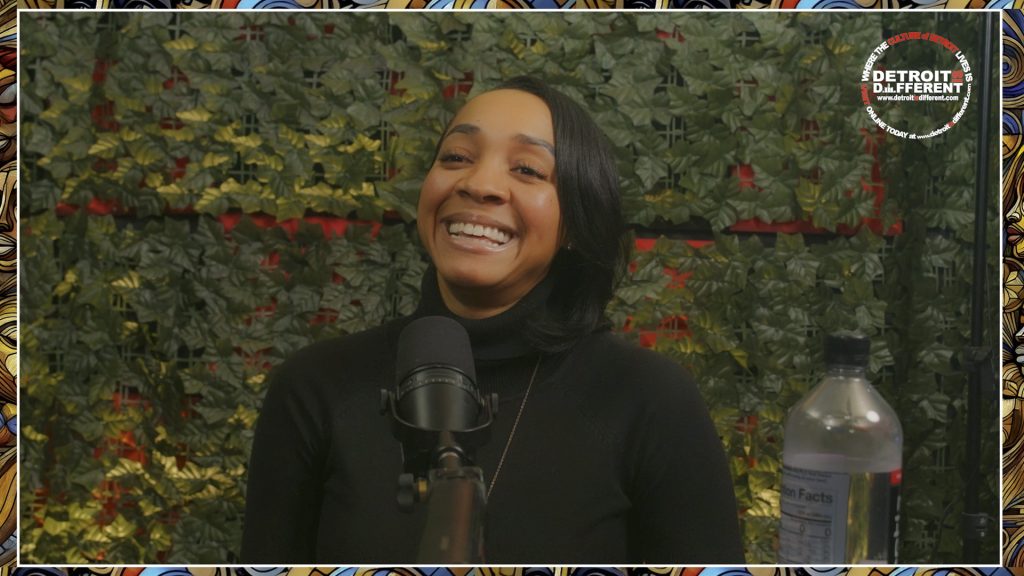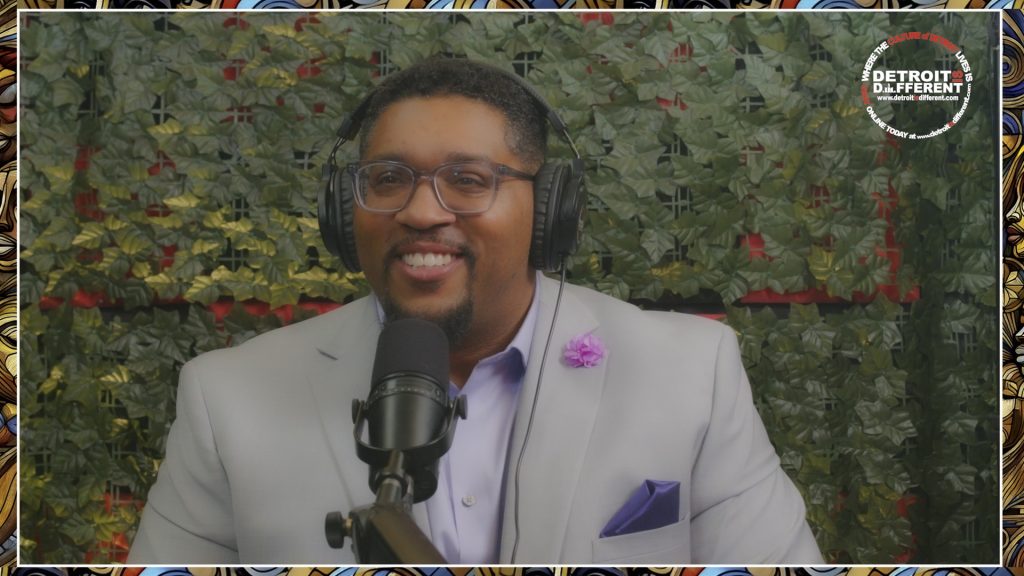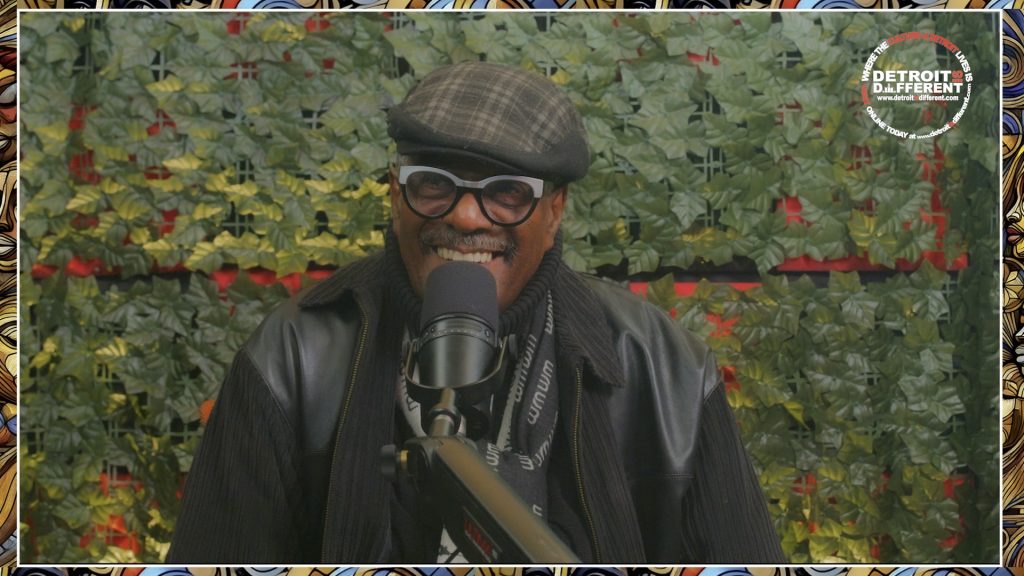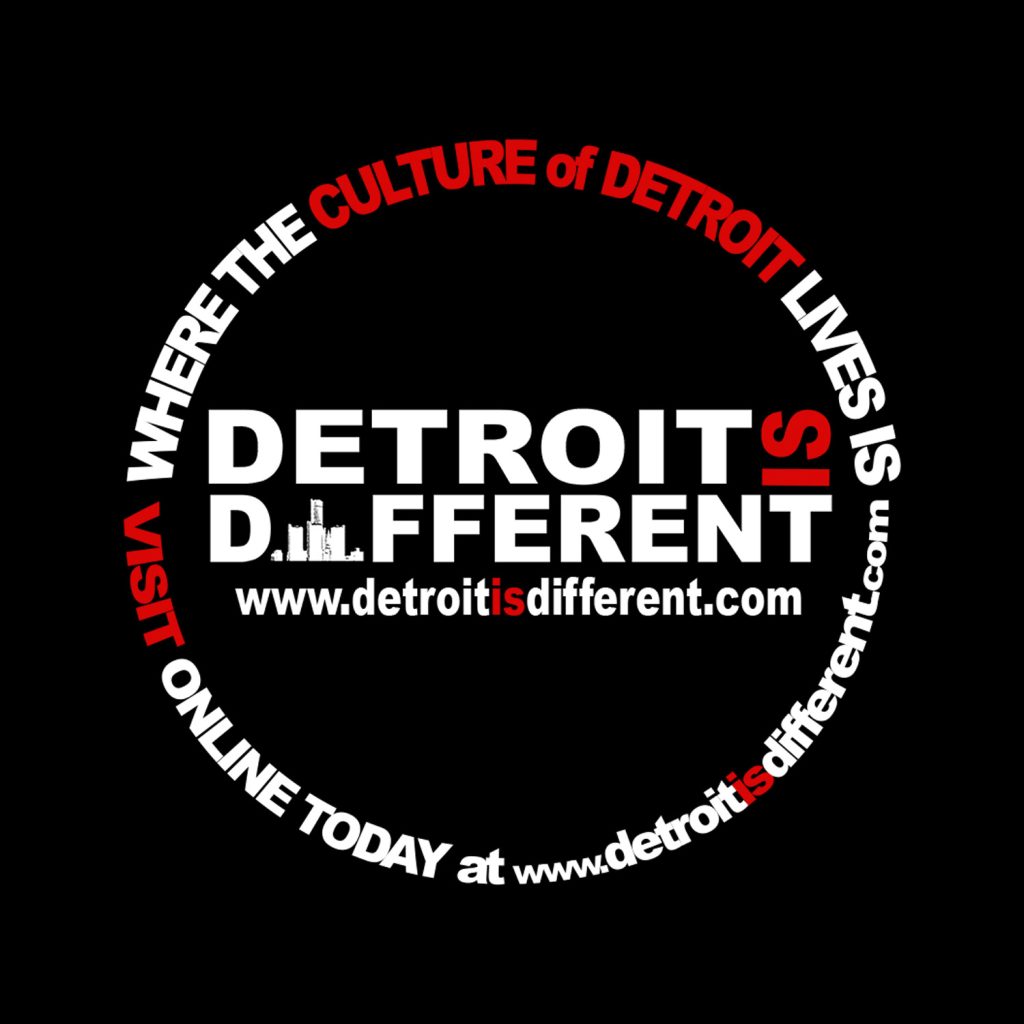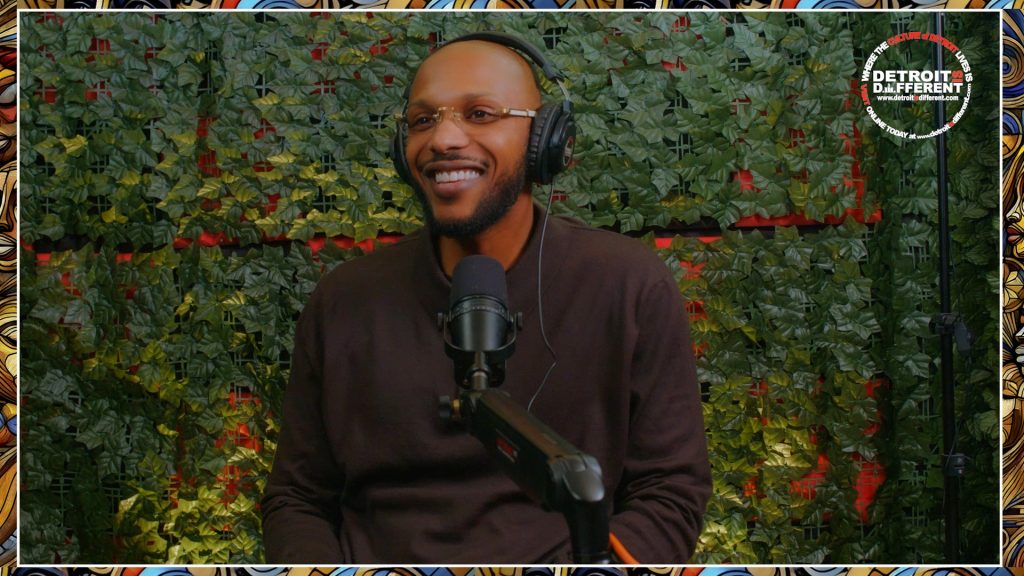“If it’s not there, you build it.” With that declaration, Jahra McKinney—Director and Director of Collections at the Detroit Sound Conservancy—steps into the Detroit Is Different studio and delivers a masterclass on legacy, love, and the power of preserving Black culture. In this rich conversation, Jahra traces her family’s Detroit story from her grandmother Essie’s legendary Oakland Avenue beauty shop—“she was meticulous… a matriarch”—to the vibrant West Side community that raised her during Detroit’s golden era of neighborhood life. She reflects on becoming an artist and organizer shaped by jazz greats like her late husband Harold McKinney and the intergenerational music ecosystem that “kept Detroit excellent by passing the torch.” Jahra shares how losing Harold revealed the urgent need for a Black-led archive—“I realized nobody was preserving us… so I had to learn to do it myself”—and how that mission fuels the Detroit Sound Conservancy’s restoration of the sacred Blue Bird Inn. This episode is a living bridge between the Detroit that was and the Detroit being rebuilt through cultural memory, community love, and creative discipline. It’s a celebration of the people who “stood on shoulders and became shoulders”—a blueprint for honoring the past while preparing space for the next generation of Black Detroit brilliance.
Pocket Watches, Power, and Black Business: Arthur Chapman on 100 Years of Jewels
“We really have exactly 100 years in Detroit,” Arthur Chapman says, and that one line sets the whole episode on

Pocket Watches, Power, and Black Business: Arthur Chapman on 100 Years of Jewels
Triniti Watson learned from an OG Archivists: Family Memory, Detroit Roots, and The Critical Mix
There’s this interesting thing with time where the past collapses within the present.” Triniti Watson—Curator-in-Residence at the Boggs Center for

Triniti Watson learned from an OG Archivists: Family Memory, Detroit Roots, and The Critical Mix
The Charter, the Choir, and the Ballot: Building Legacy Black Detroit with Jonathan Kinloch
“Politics taught me and prepared me for a world that is more political than politics.” Wayne County Commissioner (District 2)

The Charter, the Choir, and the Ballot: Building Legacy Black Detroit with Jonathan Kinloch
Video Playlist
Podcasts
Detroit is Different Services
What Detroiters Should Expect if Mary Sheffield Becomes Mayor
“I enjoy bringing joy for us all.” That’s how Erika Monaé Lewis — founder of The EMG Network and creator of Networking on Purpose — explains the spark that’s been in her since childhood. In this Detroit is Different conversation, Erika unpacks how growing up on the East Side near the old city airport, running the block with friends, and soaking in the wisdom of the neighborhood shaped her gift for connection. “I want to see you win. I want to see you grow,” she says, tracing her journey from DSA drama major and pomerette to HR leader refusing to “sign off on injustice,” to a coach teaching professionals how to turn relationships into results. Erika breaks down why networking isn’t small talk — it’s self-leadership, imagination, and joy rooted in legacy Black Detroit culture. From migration stories out of Olive Branch, Mississippi to the discipline it takes to step fully into entrepreneurship, Erika reminds us that “failure is never final,” and that authentic relationships are a form of wealth our grandparents modeled long before LinkedIn. This episode is a bridge — from the past practices that kept Black Detroit alive to the future strategies that will keep us connected, empowered, and winning together.
“‘I finally realized my purpose the moment my daughter was born’,” Ken Chandler says as he opens up in a rare, vulnerable, and powerful first-ever public interview on Detroit is Different. In one sweeping, emotional journey, Ken traces his family’s three-generation Detroit legacy—from his grandfather’s East Side business empire to the hard truths of what happens when legacy isn’t passed down. He speaks candidly about childhood trauma, gang culture, becoming a chameleon for survival, and the lifesaving mentorship that guided him out of the streets. But it’s fatherhood—“my legacy, my purpose, my healing”—that becomes the heartbeat of this conversation. Ken breaks down the generational curse of absent fathers, the moment a panic attack in the hospital revealed his calling, and how his nonprofit aims to rebuild the community accountability Black families once relied on. This episode is an emotional bridge between Detroit’s past and its future, showing how Black men reclaim legacy through love, presence, healing, and the reimagining of what fatherhood means. Overflowing with honesty and Detroit grit, Ken’s story reminds us why legacy Black culture evolves not through wealth, but through intentional fatherhood and community roots.
“Detroit would be a sad place if we weren’t all different,” says Hot Sam’s co-owner Tony Stovall, opening a conversation that moves like a masterclass in Black Detroit legacy, style, and spiritual grounding. In this Detroit is Different episode, Tony traces his journey from East St. Louis to the Eastside, from a 15-year-old getting his first suit to becoming co-owner of Detroit’s oldest Black-owned clothing store, a century-strong institution that shaped generations of our city’s fashion identity. “You have one opportunity to make your first impression,” he reminds us, weaving lessons on manhood, mentorship, and the power of loving our people out loud. Tony shares how he and Mr. Green built Hot Sam’s through grit, customer devotion, and faith—“Nothing comes between me and my partner but me or him”—and how Detroit’s flair impacts the world. This episode speaks to past and future: migration, Motown elegance, Black entrepreneurship, and why keeping the Black dollar circulating is a cultural responsibility. If you love Detroit, if you believe in legacy, if you believe that style is spiritual—this is required listening.
Detroit is Different Community

Detroit Next
Get Latest Updates
Featured Podcast
Follow Us On Intagram
Unexpected Conversations: The Most Interesting Talks
"In conversations, sometimes unexpected brilliance shines through those we least expect. This excerpt from our 500th podcast episode of `Detroit is Different` delves into one such dialogue with the legend from the Four Tops. Khary Frazier engages with the fascinating storyteller who’s been behind their tour wardrobe for years. Discover why these stories are so vibrant and unmissable. Watch to be intrigued by tales that promise more depth beyond what meets the eye.
From Grandma’s Bedroom to 500: The Pulse of Legacy Black Detroit
Detroit is Different episode 500 featuring Khary Frazier hosted by Khan Santori
#DetroitIsDifferent #UnexpectedConversations #PodcastMilestone

Unexpected Conversations: The Most Interesting Talks
"In conversations, sometimes unexpected brilliance shines through those we least expect. This excerpt from our 500th podcast episode of `Detroit is Different` delves into one such dialogue with the legend from the Four Tops. Khary Frazier engages with the fascinating storyteller who’s been behind their tour wardrobe for years. Discover why these stories are so vibrant and unmissable. Watch to be intrigued by tales that promise more depth beyond what meets the eye.
From Grandma’s Bedroom to 500: The Pulse of Legacy Black Detroit
Detroit is Different episode 500 featuring Khary Frazier hosted by Khan Santori
#DetroitIsDifferent #UnexpectedConversations #PodcastMilestone
...
The Start of Detroit is Different in 2014
"Let me introduce people to the Detroit that I know." Khary Frazier shares the vision and story behind "Detroit is Different," a podcast that began at a small French restaurant and grew into a cultural hub. Uncover the early days featuring conversations with local icons like Malik Yakini and rockers like Carolyn Striho. This platform has brought together voices from all walks of life to tell Detroit`s unique story. As we commemorate the 500th episode, join us in this celebration of community and cultural dialogue.
From Grandma’s Bedroom to 500: The Pulse of Legacy Black Detroit
Detroit is Different episode 500 featuring Khary Frazier hosted by Khan Santori
#DetroitStories #CulturalConversations #KharyFrazier #DetroitIsDifferent

The Start of Detroit is Different in 2014
"Let me introduce people to the Detroit that I know." Khary Frazier shares the vision and story behind "Detroit is Different," a podcast that began at a small French restaurant and grew into a cultural hub. Uncover the early days featuring conversations with local icons like Malik Yakini and rockers like Carolyn Striho. This platform has brought together voices from all walks of life to tell Detroit`s unique story. As we commemorate the 500th episode, join us in this celebration of community and cultural dialogue.
From Grandma’s Bedroom to 500: The Pulse of Legacy Black Detroit
Detroit is Different episode 500 featuring Khary Frazier hosted by Khan Santori
#DetroitStories #CulturalConversations #KharyFrazier #DetroitIsDifferent
...
Authentic Detroit Story
"I`m glad that I`ve built what I built, how I built it." Celebrate a milestone with Detroit is Different`s 500th podcast, featuring founder Khary Frazier. Uncover the thought-provoking dialogue that sets this podcast apart, focusing on authentic storytelling rather than superficial stories. Khary Frazier`s commitment to genuine interviews ensures a deep connection to the heart of Detroit.
From Grandma’s Bedroom to 500: The Pulse of Legacy Black Detroit
Detroit is Different episode 500 featuring Khary Frazier hosted by Khan Santori
#DetroitIsDifferent #PodcastMilestone #KharyFrazier #AuthenticityInStorytelling #DetroitVoices

Authentic Detroit Story
"I`m glad that I`ve built what I built, how I built it." Celebrate a milestone with Detroit is Different`s 500th podcast, featuring founder Khary Frazier. Uncover the thought-provoking dialogue that sets this podcast apart, focusing on authentic storytelling rather than superficial stories. Khary Frazier`s commitment to genuine interviews ensures a deep connection to the heart of Detroit.
From Grandma’s Bedroom to 500: The Pulse of Legacy Black Detroit
Detroit is Different episode 500 featuring Khary Frazier hosted by Khan Santori
#DetroitIsDifferent #PodcastMilestone #KharyFrazier #AuthenticityInStorytelling #DetroitVoices
...
Building Dreams with Support of my Mom, God Mother, & Dad
"My mom really is liking it...this is the last memory of me and my mom interacting." Join Khary Frazier as he opens up about the personal and professional tapestry woven through his family ties in the 500th episode of Detroit is Different. Dive into the narrative that explores a deep connection to his parents and godmother, and how these bonds have shaped his path in Detroit`s creative scene. A touching reflection not to be missed.
From Grandma’s Bedroom to 500: The Pulse of Legacy Black Detroit
Detroit is Different episode 500 featuring Khary Frazier hosted by Khan Santori
#DetroitLegends #PodcastAnniversary #FamilySupport

Building Dreams with Support of my Mom, God Mother, & Dad
"My mom really is liking it...this is the last memory of me and my mom interacting." Join Khary Frazier as he opens up about the personal and professional tapestry woven through his family ties in the 500th episode of Detroit is Different. Dive into the narrative that explores a deep connection to his parents and godmother, and how these bonds have shaped his path in Detroit`s creative scene. A touching reflection not to be missed.
From Grandma’s Bedroom to 500: The Pulse of Legacy Black Detroit
Detroit is Different episode 500 featuring Khary Frazier hosted by Khan Santori
#DetroitLegends #PodcastAnniversary #FamilySupport
...
Detroit, Thank You. From living-room brainstorms to citywide storytelling, your listens, shares, prayers, and pull-ups made Detroit is Different more than a platform—it’s a people-powered movement. We’ve felt the love through every high and every hurdle, and we’re still here because you show up. To our elders, youth, artists, activists, and everyday geniuses: you are the heartbeat. The work continues—louder, safer, and stronger.
In Love for your Support through the Growth of me to share collective Detroit stories
#DetroitIsDifferent #ThankYouDetroit #CommunityPower #BlackDetroit #StorytellingMatters #shorts

Detroit, Thank You. From living-room brainstorms to citywide storytelling, your listens, shares, prayers, and pull-ups made Detroit is Different more than a platform—it’s a people-powered movement. We’ve felt the love through every high and every hurdle, and we’re still here because you show up. To our elders, youth, artists, activists, and everyday geniuses: you are the heartbeat. The work continues—louder, safer, and stronger.
In Love for your Support through the Growth of me to share collective Detroit stories
#DetroitIsDifferent #ThankYouDetroit #CommunityPower #BlackDetroit #StorytellingMatters #shorts
...
From Grandma’s Bedroom on Rosa Parks to a citywide archive: Khary Frazier sits with Kahn Santori for the 500th episode of Detroit is Different this Week! No clickbait—just the heartbeat of Legacy Black Detroit: My Natural Hair Show, Collard Green Cook-offs, & much more.
#DetroitIsDifferent #Episode500 #LegacyBlackDetroit #313

From Grandma’s Bedroom on Rosa Parks to a citywide archive: Khary Frazier sits with Kahn Santori for the 500th episode of Detroit is Different this Week! No clickbait—just the heartbeat of Legacy Black Detroit: My Natural Hair Show, Collard Green Cook-offs, & much more.
#DetroitIsDifferent #Episode500 #LegacyBlackDetroit #313
...
With hearts full of gratitude, we invite you to Legacy of Support: A Celebration of Thank You—honoring every guest, collaborator, listener, neighbor, collard green grower, natural hair stylist, podcast producer, elder, and all who’ve poured into Detroit is Different since our first podcast in 2014. What began as a concept has grown into a mission and a community of storytellers, culture keepers, organizers, artists, and everyday Detroiters. We’ll celebrate the love and labor behind our milestones, lift up the people who’ve built with us on air, online, and in community, and share what’s next—because the vision ahead is big and only possible with you. This is our way of saying thank you for your time, trust, testimonies, and ten-toes-down commitment to Detroit culture. Come be seen, be celebrated, and add your story to the legacy.
Invitations for RSVP coming very soon
#DetroitIsDifferent #LegacyOfSupport #DetroitCulture

With hearts full of gratitude, we invite you to Legacy of Support: A Celebration of Thank You—honoring every guest, collaborator, listener, neighbor, collard green grower, natural hair stylist, podcast producer, elder, and all who’ve poured into Detroit is Different since our first podcast in 2014. What began as a concept has grown into a mission and a community of storytellers, culture keepers, organizers, artists, and everyday Detroiters. We’ll celebrate the love and labor behind our milestones, lift up the people who’ve built with us on air, online, and in community, and share what’s next—because the vision ahead is big and only possible with you. This is our way of saying thank you for your time, trust, testimonies, and ten-toes-down commitment to Detroit culture. Come be seen, be celebrated, and add your story to the legacy.
Invitations for RSVP coming very soon
#DetroitIsDifferent #LegacyOfSupport #DetroitCulture
...
Success Takes Time a 20-Year Journey
"It might not happen right there, but perseverance is key. Earl `E-40` Stevens remarked on his 11-year journey in the spirits industry, emphasizing long-term vision and adaptation. In his exclusive Detroit interview, E-40 delves into the importance of understanding market trends and staying healthy in business. Gain a fresh perspective on navigating challenges and staying ahead. Don`t miss this enlightening discussion on music, business, and personal growth.
The Game Ain’t Changed—Just the Product: E-40 Talks Ownership at Taste of Black Spirits Detroit
Detroit is Different episode 494 with Earl `E-40` Stevens
#E40 #BusinessStrategies #DetroitTalks #Perseverance #IndustryInsights

Success Takes Time a 20-Year Journey
"It might not happen right there, but perseverance is key. Earl `E-40` Stevens remarked on his 11-year journey in the spirits industry, emphasizing long-term vision and adaptation. In his exclusive Detroit interview, E-40 delves into the importance of understanding market trends and staying healthy in business. Gain a fresh perspective on navigating challenges and staying ahead. Don`t miss this enlightening discussion on music, business, and personal growth.
The Game Ain’t Changed—Just the Product: E-40 Talks Ownership at Taste of Black Spirits Detroit
Detroit is Different episode 494 with Earl `E-40` Stevens
#E40 #BusinessStrategies #DetroitTalks #Perseverance #IndustryInsights
...


